O, Scallion!
The first time I cut into a scallion,
I leapt back, watching it splinter
into a thousand translucent Os
that skipped across the counter
like flecks of young jade.
I was enamored by its crinkle,
its staticky scrunch. How it
doubled over, limp,
in a melodramatic act of being
O so done with this world. Its
rubbery stems, capped in mottled
whiskery faces, like a deep-sea
bottom feeder, gasping as soon as
pulled from dark moist. I marveled:
O, tenacious green, teenage
zest. Skins that smear
in protest against board
when knife is too dull.
O, child of spring, ripped from home
far too soon, dug up for babyish
bulbs, your final form forgotten.
I confess, I sometimes falter when
you’re tucked between cousins
in camouflage of leek, shallot, chive—
and then I swore
to one day snip
a fistful of scallions
right at the end
of their hollowness,
stand them
in shallow water
and witness how,
when allowed to,
unfettered and alone,
they bloom.
by Sofia Koyama
from Brooklyn Poets

 A new generation of drugs is revolutionizing the treatment of obesity and
A new generation of drugs is revolutionizing the treatment of obesity and  Coming up with economic policy is a difficult, unforgiving task. To make the best of it, it helps to work with an accurate model of how the economy works. If you use a misleading model and act on it, you can’t reasonably expect good outcomes: in that scenario, we end up, as JM Keynes warned in the 1930s, with “madmen in authority”, acting according to the precepts of “some defunct economist”.
Coming up with economic policy is a difficult, unforgiving task. To make the best of it, it helps to work with an accurate model of how the economy works. If you use a misleading model and act on it, you can’t reasonably expect good outcomes: in that scenario, we end up, as JM Keynes warned in the 1930s, with “madmen in authority”, acting according to the precepts of “some defunct economist”.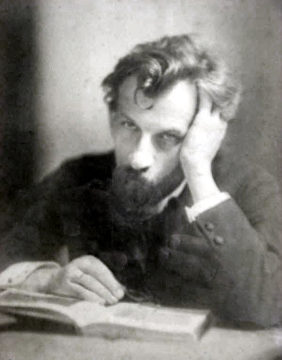 W
W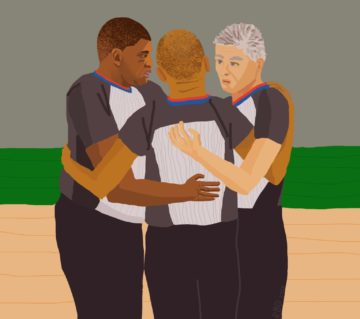 I like when the refs touch each other in any way, but especially when all three of them put their arms around one another, huddling to discuss a difficult call. I like watching endless replays of fouls, trying to decide whether something was a block or a charge, or who touched the ball last. I like when the commentators disagree with the refs and when the broadcast cuts to the former ref Steve Javie in some NBA warehouse in New Jersey, standing in front of TV screens, calmly hypothesizing what the refs are discussing.
I like when the refs touch each other in any way, but especially when all three of them put their arms around one another, huddling to discuss a difficult call. I like watching endless replays of fouls, trying to decide whether something was a block or a charge, or who touched the ball last. I like when the commentators disagree with the refs and when the broadcast cuts to the former ref Steve Javie in some NBA warehouse in New Jersey, standing in front of TV screens, calmly hypothesizing what the refs are discussing.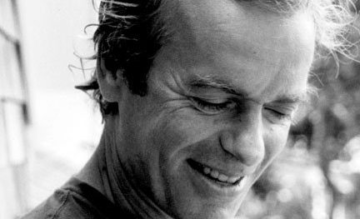 1.
1.  In the twenties, Archie League was spinning, diving, and doing loop-the-loops above the clouds, engine roaring, little plane shaking as he and the other barnstormers in his flying circus entertained folks across Missouri and Illinois. Necks grew stiff from watching, eyes squinted against the light, jaws dropped and air rushing in with every oooohhhh and whoa and oh my sweet Lord Jesus.
In the twenties, Archie League was spinning, diving, and doing loop-the-loops above the clouds, engine roaring, little plane shaking as he and the other barnstormers in his flying circus entertained folks across Missouri and Illinois. Necks grew stiff from watching, eyes squinted against the light, jaws dropped and air rushing in with every oooohhhh and whoa and oh my sweet Lord Jesus. Amid the carnage of the Second World War, which saw some 60 million killed, including the Nazis’ industrialized annihilation of six million Jews, one event stands out in American memory as the most momentous: the atomic bomb attack that leveled Hiroshima on August 6, 1945. According to the most authoritative Japanese casualty count, which is higher than the American figure, the bomb killed some 100,000 people outright and another 40,000 over the next several months; blast, flash burns, and firestorm took care of the former, and radiation sickness accounted for the latter. A second bomb that dropped just three days later on Nagasaki killed 70,000 all told but gave some people misgivings even more troubling than those produced by Hiroshima.
Amid the carnage of the Second World War, which saw some 60 million killed, including the Nazis’ industrialized annihilation of six million Jews, one event stands out in American memory as the most momentous: the atomic bomb attack that leveled Hiroshima on August 6, 1945. According to the most authoritative Japanese casualty count, which is higher than the American figure, the bomb killed some 100,000 people outright and another 40,000 over the next several months; blast, flash burns, and firestorm took care of the former, and radiation sickness accounted for the latter. A second bomb that dropped just three days later on Nagasaki killed 70,000 all told but gave some people misgivings even more troubling than those produced by Hiroshima.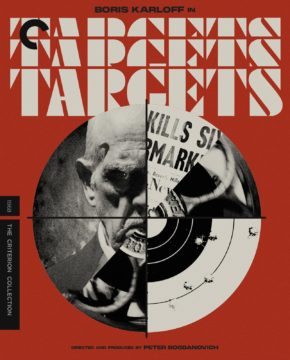 While Bogdanovich was about as immersed in cinema as is possible, a key inspiration for his 1968 debut, Targets—a thriller whose terse, nightmarish qualities would not be repeated across his wide-ranging and influential filmography—came not from the movies but from real life. Charles Whitman was an altar boy, an Eagle Scout, a marine, and a mass murderer: in 1966, between the last day of July and the first day of August, the twenty-five-year-old ex–bank teller killed sixteen people—including his wife and mother—and wounded more than thirty others, shooting the majority of his victims from the observation deck of the Main Building of the University of Texas at Austin. For the mass media, which made him a household name—“The Psychotic and Society,” declared a Time cover featuring his image—he was a cleaner-cut cousin to Lee Harvey Oswald, his sights trained not on political power or celebrity but on the everyday citizens whom he resembled at a distance, and maybe under the skin as well. “I don’t really understand myself these days,” the shooter himself observed in the half-typed, half-handwritten suicide note discovered at his residence. “I am supposed to be an average reasonable and intelligent young man. However, lately (I can’t recall when it started) I have been a victim of many unusual and irrational thoughts.”
While Bogdanovich was about as immersed in cinema as is possible, a key inspiration for his 1968 debut, Targets—a thriller whose terse, nightmarish qualities would not be repeated across his wide-ranging and influential filmography—came not from the movies but from real life. Charles Whitman was an altar boy, an Eagle Scout, a marine, and a mass murderer: in 1966, between the last day of July and the first day of August, the twenty-five-year-old ex–bank teller killed sixteen people—including his wife and mother—and wounded more than thirty others, shooting the majority of his victims from the observation deck of the Main Building of the University of Texas at Austin. For the mass media, which made him a household name—“The Psychotic and Society,” declared a Time cover featuring his image—he was a cleaner-cut cousin to Lee Harvey Oswald, his sights trained not on political power or celebrity but on the everyday citizens whom he resembled at a distance, and maybe under the skin as well. “I don’t really understand myself these days,” the shooter himself observed in the half-typed, half-handwritten suicide note discovered at his residence. “I am supposed to be an average reasonable and intelligent young man. However, lately (I can’t recall when it started) I have been a victim of many unusual and irrational thoughts.” It began as an urbane fable about how to brush down bristling nerves. Sometime in the summer of 1909, not long before Sigmund Freud was due to embark on his only visit to the United States, he was enjoying a cigar in the company of his inner circle in the busy Biedermeier interior of Berggasse 19, when he suddenly announced, “I am going to America to catch sight of a wild porcupine and to give some lectures.”
It began as an urbane fable about how to brush down bristling nerves. Sometime in the summer of 1909, not long before Sigmund Freud was due to embark on his only visit to the United States, he was enjoying a cigar in the company of his inner circle in the busy Biedermeier interior of Berggasse 19, when he suddenly announced, “I am going to America to catch sight of a wild porcupine and to give some lectures.”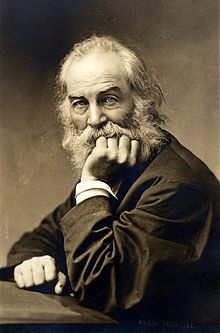 John Dewey
John Dewey In theory, Nate works 40 hours a week in the operations department at a major fintech company. In reality, Nate works one hour a day at most. He moseys over to his computer whenever he gets an alert on his phone that he’s got a task to complete. Otherwise, he spends most of the day doing, basically, whatever he feels — he sleeps in, he watches TV, he does household chores. His only real restriction is that he can’t stray too far from home in the event he is needed for something.
In theory, Nate works 40 hours a week in the operations department at a major fintech company. In reality, Nate works one hour a day at most. He moseys over to his computer whenever he gets an alert on his phone that he’s got a task to complete. Otherwise, he spends most of the day doing, basically, whatever he feels — he sleeps in, he watches TV, he does household chores. His only real restriction is that he can’t stray too far from home in the event he is needed for something. Spanning from 1900 to 1977 in Kerala, The Covenant of Water reveals some of the contradictions of living in a colonised, segregated society. Dr Digby Kilgour, the lonely son of an impoverished alcoholic mother, flees Scotland for colonised India, only to discover that he is “oppressed in Glasgow; oppressor here. The thought depresses him.” Yet the complicated questions that might develop as he negotiates with those increasingly fraught realities are set aside while he contends with his new hospital job and begins an affair with a woman who is married to a colleague. Tensions rise as that colleague makes a fatal medical error and places the blame on Digby. Any confrontation that would have occurred, however, is derailed by an accident that conveniently pushes Digby’s storyline in another direction.
Spanning from 1900 to 1977 in Kerala, The Covenant of Water reveals some of the contradictions of living in a colonised, segregated society. Dr Digby Kilgour, the lonely son of an impoverished alcoholic mother, flees Scotland for colonised India, only to discover that he is “oppressed in Glasgow; oppressor here. The thought depresses him.” Yet the complicated questions that might develop as he negotiates with those increasingly fraught realities are set aside while he contends with his new hospital job and begins an affair with a woman who is married to a colleague. Tensions rise as that colleague makes a fatal medical error and places the blame on Digby. Any confrontation that would have occurred, however, is derailed by an accident that conveniently pushes Digby’s storyline in another direction.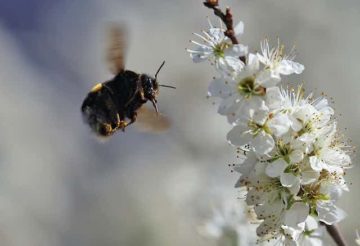 As trees and flowers blossom in spring, bees emerge from their winter nests and burrows. For many species it’s
As trees and flowers blossom in spring, bees emerge from their winter nests and burrows. For many species it’s